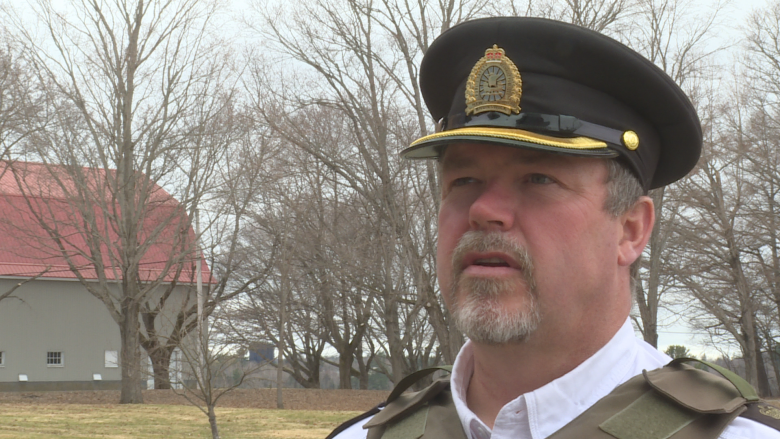Daniel Dyer's poaching punishment one of the largest in province's history
The fine of more than $18,000 and a week in jail is one of the stiffest penalties in New Brunswick history ever handed down to anyone in violation of the Fish and Wildlife Act.
Daniel Dyer was sentenced Wednesday afternoon in Edmundston provincial court after pleading guilty to four major violations of the Act including illegal practices and the illegal possession of hundreds of animal parts and meat.
"We've had some other very large fines as well, it's a great deterrent for people that are going to break the law," said Rick Nash, superintendent of conservation enforcement in New Brunswick.
Nash told CBC News that Dyer's penalty was in the top 10 largest penalty against a poacher in the province's history despite recent criticisms from some hunters that the penalty was too lenient.
"Any time there's a positive outcome in court that's a win for us," said Nash. "And it's a win for the wildlife and the people of New Brunswick."
Although Nash could not speak to specifics about the tactics used in the investigation into Dyer's poaching, court documents show that undercover officers were used in a sting surrounding a moose hunt which eventually led to a raid on Dyer's outfitting business in Plaster Rock.
The province's application to obtain a search warrant indicates two Department of Natural Resources officers went undercover on hunting trips with the owners and operators of Lawrence Dyer & Sons Outfitters between August 15, 2013 and September 2014.
Undercover operation
During that time the undercover officers allege Dyer orchestrated a deal to sell a New Brunswick resident hunting license to an American hunter in exchange for $500 and "a couple of hundred pounds of moose meat."
A raid on the Dyer family business, Lawrence Dyer and Sons Outfitters, led to the seizure of a detailed and exotic list of the animal parts.
They included:
- 438 pounds of meat
- 378 bear gall bladders
- an alligator head
- five bear penises displayed on a board
- a walrus penis
- a variety of other deer and moose parts including heads and partial carcasses
Nash said while moose and deer meat are by far the most commonly seized illegal items, the hoarded bear gall bladders leads him to belive there was intended black market dealings.
"It because of the illegal trade and what we're trying to prevent is people harvesting bears strictly for the gallbladder," said Nash. "On the black market they can be very expensive."
Estimates on what a black bear gall bladder is worth can range from a few hundred to a few thousand dollars.
Enough officers
Some outfitters have voiced concerns in recent years about the small amount of officers patrolling New Brunswick forests and operating "on a shoestring budget."
There are currently 69 conservation enforcement officers in New Brunswick, down from 82 officers reported in December 2015. At that time the Department of Natural Resources had a 14 per cent conviction rate over five years when dealing with major violations of the Fish and Wildlife Act.
Nash admits there are fewer officers in the woods than in decades past, but says they are currently in a hiring phase.
"Everybody may say that we need more officers," said Nash. "The officers that we have are very dedicated. They do a very good job."
"Twenty years ago we had more officers," said Nash. "But they weren't dedicated to law enforcement. They were fish and wildlife technicians, road kill recovery, fire. They did many other things."
"Without public help, we wouldn't be able to do the job that we do," Nash added. "A lot of the information we investigate come in from concerned citizens."




